Review: “Cabaret” at the Kennedy Center
Roundabout's Cabaret sizzles with sexuality, though it lacks a truly galvanizing Emcee or Sally Bowles
By André Hereford on July 20, 2017 @here4andre

Roundabout Theatre Company’s production of Cabaret (★★★) bumps and grinds its way through a solid, legs-wide-open rendition of Kander and Ebb’s timeless musical. Inspired by Sam Mendes and Rob Marshall’s singular nineties production, the national tour, directed by BT McNicholl, turns up the naughtiness and puts the bi in “bye-bye, Mein Herr.”
In lieu of a truly galvanizing Emcee or Sally Bowles, Cabaret earns its money by placing the story front and center, filling the margins with tantalizing detail and a stunningly talented ensemble. Benjamin Eakeley, who appeared alongside Alan Cumming and Michelle Williams in the musical’s 2014 Broadway revival, takes the lead as Clifford Bradshaw, an aspiring American writer arriving in Berlin in 1929.
Guided by his new German friend and pupil, Ernst Ludwig (Patrick Vaill), Cliff quickly discovers the city’s louche, licentious underbelly at the Kit Kat Club, where the twisted Emcee (Jon Peterson) holds court behind a mask of white makeup and red-rouged bare nipples. Populated by society’s sexual rebels and outcasts, the Kit Kat is a divey, dark reflection of the waning years of Germany’s post-WWI Weimar Republic. Inside, anything goes and everything’s for sale.
Expressive lighting extends the club into the audience, infusing the Eisenhower Theater with a speakeasy sense of underground rebellion. The Kit Kat girls and boys grab attention before the show begins, prowling and stretching across the multi-level set either shirtless or in lingerie. All of the Kit Kat players deliver: the band blazes through often inventive arrangements of Kander and Ebb’s fantastic songs, while backup dancers and singers for the Emcee, and the club’s star performer, Sally Bowles (Leigh Ann Larkin), turn the main stage into a thrusting, contorting, naughty playground.
Sally is quite naughty herself. She’s loose and a liar, snorts cocaine, and doesn’t care nearly as much as Clifford does about the rising power of the Nazi party. Larkin is delightfully brassy and sings marvelously, but her Sally’s more exasperating than lovable. While she seizes every bit of humor in the bawdy “Don’t Tell Mama,” she pours enough acid into the deliberately paced take on the show’s classic title tune to sear a hole through the stage.
Eakeley sharply conveys Cliff’s smarts, quickened pulse and bisexual curiosity, but he and Sally’s romantic entanglements don’t engender half the interest generated by the love story between Cliff’s landlady, Fräulein Schneider (Mary Gordon Murray), and her widower tenant, Herr Schultz (Scott Robertson). As Schneider, Murray gathers steam throughout the show, both funny and endearing as an exceedingly practical woman who must measure whether she’d give her life for love. By the time she performs “What Would You Do?,” she’s usurped the heart of Cabaret.
The politics of the show come across cogently, though they’re somewhat muted by the Peterson’s almost-warm portrayal of the Emcee. The greater (and more persuasive) emphasis seems to be on sexual politics, and the story’s timely message of fluidity and acceptance, imparted as much by the stew of attractions and betrayals as by McNicholl’s full-bodied staging and the original, suggestive choreography, recreated for the tour by Cynthia Onrubia.
There’s only one lady in this Kit Kat’s hot and handsy “Two Ladies,” but it’s plenty delightful, as the Emcee gives a little and gets a little from Lulu (Chelsey Clark) and Bobby (Joey Khoury). Peterson might not capture the indomitable edge of menace the Emcee can add to the club, but he sells the imp’s lustful attitude and appetite for provocation.
The Emcee takes pleasure in thumbing his nose at convention, just as Cabaret uses outré carnality and violence to tell a story about believing in love during a time of shocking inhumanity. The heat shoots like lightning from the Kit Kat players, who transform the Eisenhower Theater into a sultry and intimate club, where life is beautiful, the girls and boys are beautiful, and everyone’s troubles wait outside.
Cabaret runs to August 6, at Kennedy Center, Eisenhower Theatre, 1501 14th St. NW. Tickets are $59 to $149. Call 202-467-4600, or visit Kennedy-Center.org.
More from Metro Weekly:
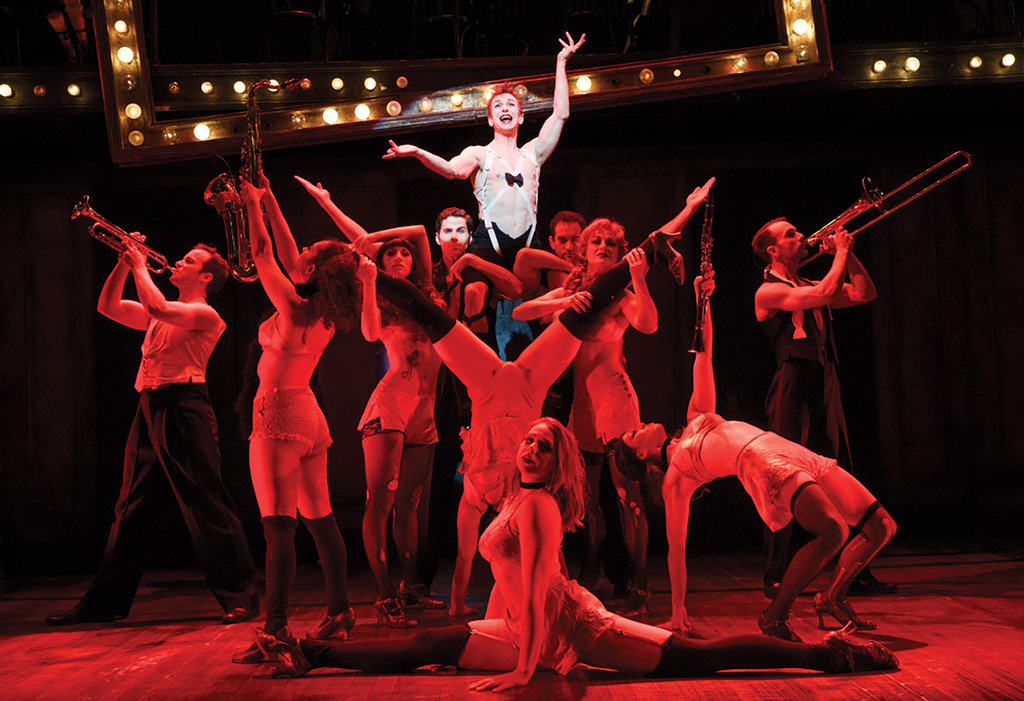
Radical Compassion Powers The Inheritance at Round House
The cast of The Inheritance open up about love and legacy in Round House's powerful production. Exclusive portraits by Todd Franson.
By Ryan Leeds on October 12, 2025
Matthew López felt detached. While reading E. M. Forster's classic novel, Howard's End, in New York's Central Park several years ago, the Tony award-winning playwright was inspired to write his own version of the twentieth-century tale of three British social classes intertwining during Europe's Edwardian era.
Using the essence of Forster's famous mandate from the novel, "Only connect!" López would set his version, The Inheritance in contemporary metropolitan life, replete with themes of young love, politics, sexual escapades, friendship, substance abuse, redemption, and haunting memories of the AIDS epidemic, all of which would be discussed between various generations of gay men.
Classical & Choral Music: Fall Arts Preview 2025
From Poe-tinged tone poems to Handel and carols, a season of range and ritual with bold new works and film-with-orchestra spectacles.
By Doug Rule on September 24, 2025 @ruleonwriting
Little by little, year after year, from one season to the next, there have been some subtle yet certain shifts in programming among local classical music organizations -- in both good and not-so-good ways, depending on whether you like, say, holiday sing-alongs come Christmastime. If you do, well, good for you, but boo hoo for the rest of us, because that's definitely on the uptick this season, as in previous years. Similarly, if Halloween is more your jam, you're also in luck, because there's also been a slight increase in the number of eerily inspired, scary-themed shows.
There's also more diversity all around, and in multiple senses of the term -- from slightly more female composers with works being performed around town, to more genre- and boundary-pushing works and programs overall, to seemingly more out, LGBTQ-identified people in this particular genre.
Above & Beyond: Fall Arts Preview 2025
The best of the Washington, D.C. fall arts season in comedy, readings, exhibits, lectures, and more.
By Doug Rule on September 24, 2025 @ruleonwriting
If you need relief from these stressful and angst-ridden times, you're sure to find something to salve your soul in this section. If you crave a good laugh attack, for starters, look to the "Because They're Funny Comedy Festival," or seek out specific comedians and eccentrics known to get the job done, be it John Waters or Paula Poundstone (both coming to the Birchmere), or Jessica Kirson or Margaret Cho (coming to the Warner), or Leslie Jones, who will be at The Clarice later this winter. To name only five.
Of course, if you'd prefer to get serious and really contemplate and converse about our woeful state of affairs, you'll find plenty of ways to do that, as well. Start by consulting the lineup of noted authors coming to local bookstores and even a certain historic synagogue.
Support Metro Weekly’s Journalism
These are challenging times for news organizations. And yet it’s crucial we stay active and provide vital resources and information to both our local readers and the world. So won’t you please take a moment and consider supporting Metro Weekly with a membership? For as little as $5 a month, you can help ensure Metro Weekly magazine and MetroWeekly.com remain free, viable resources as we provide the best, most diverse, culturally-resonant LGBTQ coverage in both the D.C. region and around the world. Memberships come with exclusive perks and discounts, your own personal digital delivery of each week’s magazine (and an archive), access to our Member's Lounge when it launches this fall, and exclusive members-only items like Metro Weekly Membership Mugs and Tote Bags! Check out all our membership levels here and please join us today!
The Magazine
-
Most Popular
 Florida Man Arrested After Ripping Down Pride Flag at Starbucks
Florida Man Arrested After Ripping Down Pride Flag at Starbucks  Pete Buttigieg Leads Democrats in 2028 Presidential Poll
Pete Buttigieg Leads Democrats in 2028 Presidential Poll  Miss Pixie Says Goodbye
Miss Pixie Says Goodbye  If I Had Legs I’d Kick You Review: Motherly Meltdown
If I Had Legs I’d Kick You Review: Motherly Meltdown  10 People on Trial for Online Harassment of Brigitte Macron
10 People on Trial for Online Harassment of Brigitte Macron  Graham Platner Apologizes for "Indefensible" Anti-LGBTQ Posts
Graham Platner Apologizes for "Indefensible" Anti-LGBTQ Posts  Gay New York Democrat Sets Fundraising Record
Gay New York Democrat Sets Fundraising Record  Frankenstein Review: Del Toro’s Creation Fails to Come Alive
Frankenstein Review: Del Toro’s Creation Fails to Come Alive  Jack Ciattarelli Twists Mikie Sherrill’s Words in Anti-Gay Ad
Jack Ciattarelli Twists Mikie Sherrill’s Words in Anti-Gay Ad  Gavin Newsom Calls for "Nuance" on Trans Athlete Participation
Gavin Newsom Calls for "Nuance" on Trans Athlete Participation
 If I Had Legs I’d Kick You Review: Motherly Meltdown
If I Had Legs I’d Kick You Review: Motherly Meltdown  Miss Pixie Says Goodbye
Miss Pixie Says Goodbye  10 People on Trial for Online Harassment of Brigitte Macron
10 People on Trial for Online Harassment of Brigitte Macron  Pete Buttigieg Leads Democrats in 2028 Presidential Poll
Pete Buttigieg Leads Democrats in 2028 Presidential Poll  South Korea to Count Same-Sex Couples in National Census
South Korea to Count Same-Sex Couples in National Census  Commentary: The American Art of Disruption
Commentary: The American Art of Disruption  Gay New York Democrat Sets Fundraising Record
Gay New York Democrat Sets Fundraising Record  Gavin Newsom Calls for "Nuance" on Trans Athlete Participation
Gavin Newsom Calls for "Nuance" on Trans Athlete Participation  Florida Man Arrested After Ripping Down Pride Flag at Starbucks
Florida Man Arrested After Ripping Down Pride Flag at Starbucks  Graham Platner Apologizes for "Indefensible" Anti-LGBTQ Posts
Graham Platner Apologizes for "Indefensible" Anti-LGBTQ Posts
Scene
Metro Weekly
Washington's LGBTQ Magazine
P.O. Box 11559
Washington, DC 20008 (202) 527-9624
About Us pageFollow Us:
· Facebook
· Twitter
· Flipboard
· YouTube
· Instagram
· RSS News | RSS SceneArchives
Copyright ©2025 Jansi LLC.









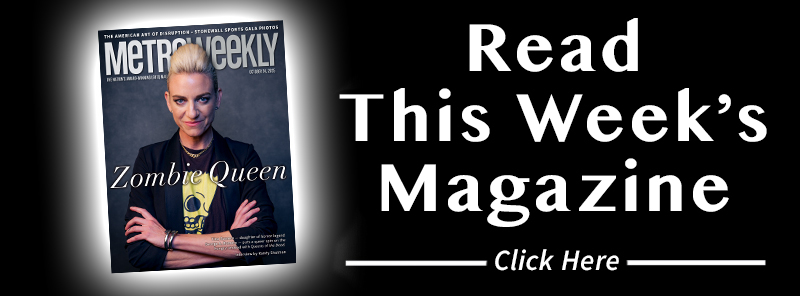
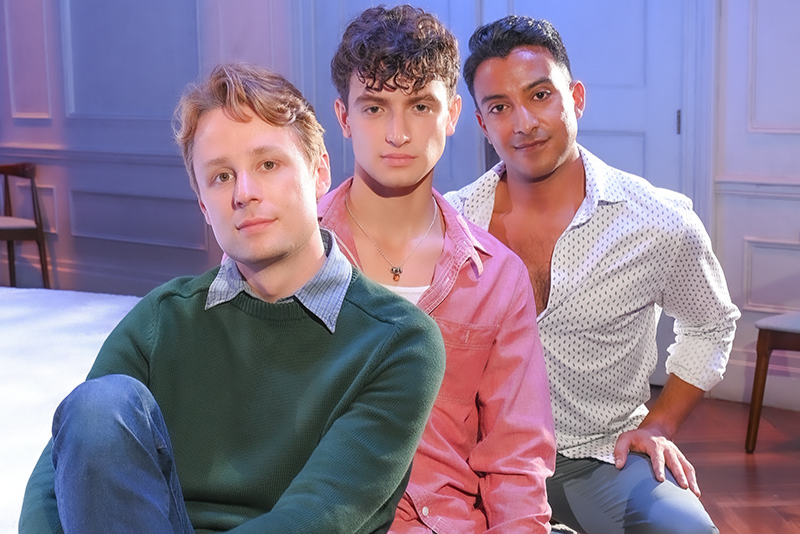

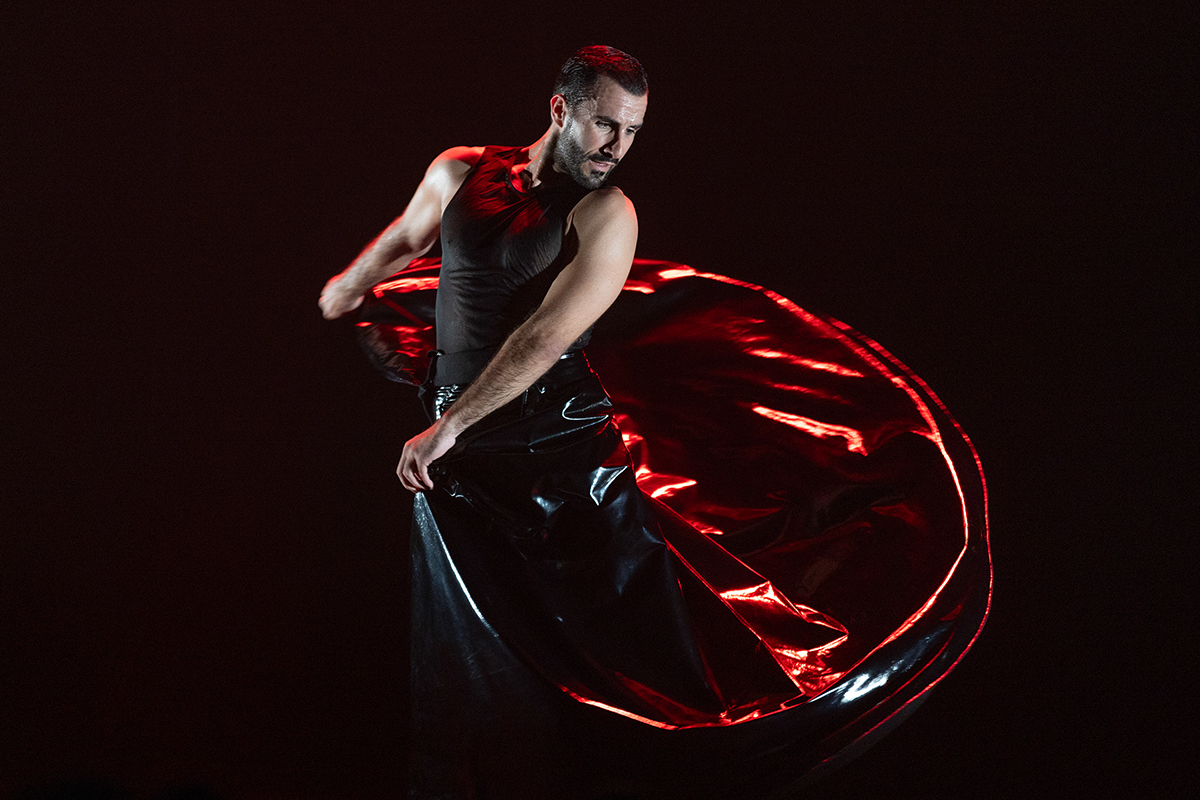


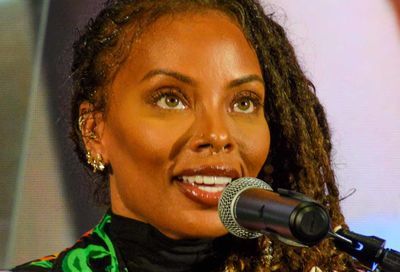
You must be logged in to post a comment.